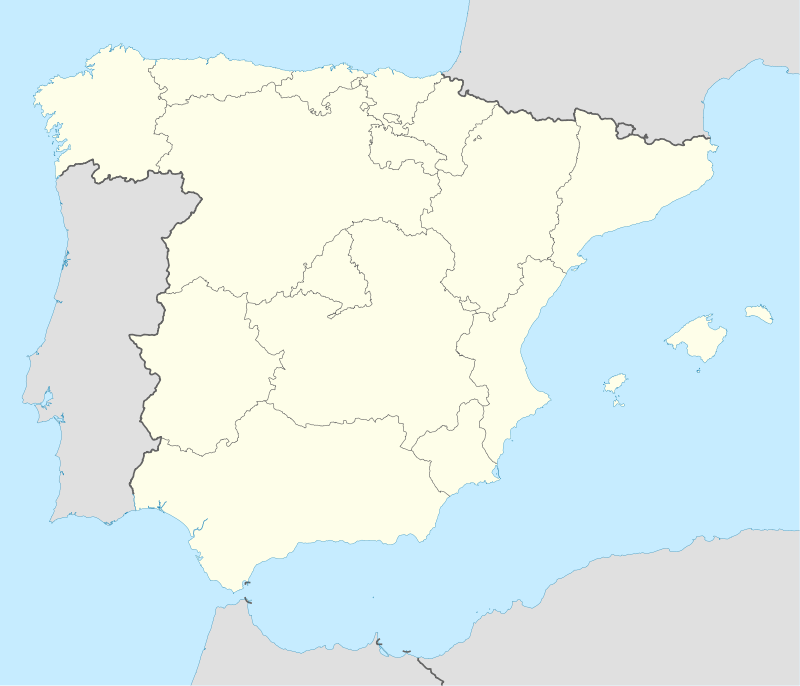Abejar
| Abejar | ||
|---|---|---|
| Municipality | ||
 | ||
| ||
 Abejar Location in Spain | ||
| Coordinates: 41°47′N 2°46′W / 41.783°N 2.767°WCoordinates: 41°47′N 2°46′W / 41.783°N 2.767°W | ||
| Country |
| |
| Autonomous community |
| |
| Province | Soria | |
| Comarca | Pinares | |
| Judicial district | Soria | |
| Government | ||
| • Alcalde | Miguel Angel Navas . (2015) (PSOE) | |
| Area | ||
| • Total | 23.43 km2 (9.05 sq mi) | |
| Elevation | 1,090 m (3,580 ft) | |
| Population (2009) | ||
| • Total | 383 | |
| • Density | 16/km2 (42/sq mi) | |
| Demonym(s) | abejaruco, abejareño, abejarense | |
| Time zone | CET (UTC+1) | |
| • Summer (DST) | CEST (UTC+2) | |
| Postal code | 42146 | |
| Website | Official website | |
Abejar is a town in the Spanish province of Soria, and the autonomous community of Castilla y León.
History
There is a legend that says that in 1776, three different settlements united and formed the village of Abejar. These three settlements (parishes or streets) were Nuestra Señora del Camino, Piedrafita, and Barrio Bajero de Abejar. The same legend, compiled by Bernardo de la Torre, says that the ancient hermitage was founded by Saint James, and the wood carving was made by Saint Lucas. He also comments that in 570, the street was destroyed by Liuvigild.
When Priedrafita was depopulated, it was joined to Abejar, and the only remembrance was the name of the Virgin, the ruins and the hermitage. After these two districts were united, they formed one village, and they had only one parish church, dedicated to Saint John the Baptist.
After the falling of Absolutism, this town changed its status to constitutional municipality in Old Castile, Soria legal district, which in the 1842 census, had 146 homes and 584 neighbours.

